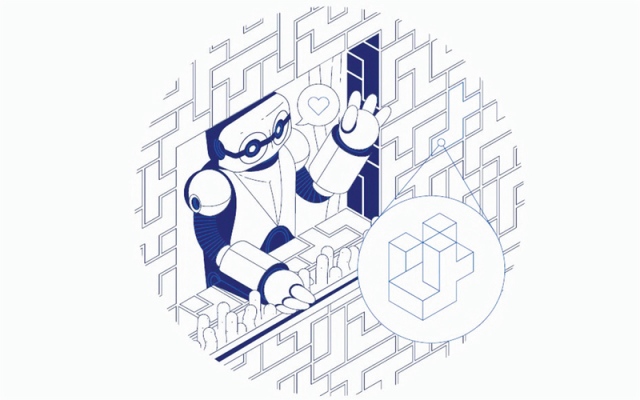Dubai: The Mohammed bin Rashid Centre for Accelerated Research (MBR CAR), an initiative by Dubai Future Foundation, has completed 35 scientific studies as part of the Mohammed Bin Rashid Space Settlement Challenge, in collaboration with Guaana, a new scientific research funding platform.
Abdulaziz AlJaziri Deputy CEO of Dubai Future Foundation, stressed the importance of supporting and sharing scientific knowledge in order to develop new industries and develop proactive solutions for the challenges we will face in the future.
“These scientific studies reflect the efforts of Mohammed bin Rashid Centre for Accelerated Research to support scientific research related to space settlement – technology that will improve life on Earth as well. This is in line with Dubai Future Foundation’s keenness to cooperate and partner with research institutions around the world to create new ideas and innovations for a better future”, he added.
Through a rigorous evaluation process, the studies were selected by peer review among the cohort of 275 expert scientists that applied for the funding. They came from various disciplines and leading universities and research centres in the USA, UK, Switzerland, Singapore, Japan, Australia, Canada, France, Germany, Morocco, UAE and others.
Three prototypes developed in these studies already show promising results.
Bionic Plants
In this study Dr. Tara Karimi and Moji Karimi of Cemvita Factory trialed a technology that replicates photosynthesis: the process by which plants take in carbon dioxide and water and turn it into oxygen and glucose.
Astronauts typically breathe out 1 kilogram of carbon dioxide every day, which could be collected, processed and recycled into compounds that are useful in space travel. Given that carbon dioxide also makes up 95% of the Martian atmosphere, this method suggests that space settlements in the future could create their own oxygen, glucose and other compounds from just the air around them. This technology might be even more critical for challenges on earth, such as reducing carbon emissions to tackle climate change.
Many countries incentivise companies to reduce their carbon emissions by offering tax credits. Companies are therefore increasingly using carbon capture technology, removing carbon dioxide from the air and storing it underground. These technologies currently cost US$100 per tonne of carbon. By using the prototype technology, which allows companies to capture their exhaust gases directly, the cost falls to $30.
The scientists confirmed that the funding for this research helped the developed prototype to not only reduce the cost of carbon capture, but also helps recycle the carbon dioxide into other useful materials.
Farming Water on Mars
In one of the studies supported by the Mohammed bin Rashid Centre for Accelerated Research, Dr. Javier Martin Torres of Lulea University of Technology in Sweden extracted water from water vapour using salts found on Mars that absorb moisture from the air at specific temperature and humidity levels and convert it into usable water, known as BOTTLE Water Farming.
Not only will this technology have “great impact for Mars exploration and the UAE’s strategic space exploration goals”, but it will also be critical in addressing economic, environmental and social, challenges on Earth – says Dr Javier Martin-Torres Principal Investigator of BOTTLE at Luleå University of Technology Sweden.
Also according to Dr Javier, the grant enabled the development of “several functional prototypes of water farms” which were tested in the Boulby Mine (UK), as an extreme environment comparable to Mars.
Cooperative 3D Printing
The third promising study funded by the Mohammed Bin Rashid Centre for Accelerated Research enabled scientists at the University of Arizona to develop robotic technology that uses solar-thermal energy to produce interlocking pieces for construction. The ‘Cooperative 3D Printing Robot’ prototype, which combines the capabilities of robotics and 3D printing technology, is in the process of being patented.
This prototype is a breakthrough for 3D printing technology, as the modular structure means the size of the printer does not limit the size of the structures it can build. This has typically been one of the biggest challenges faced in the practical applications of 3D printing technology. This technology therefore would reduce the cost of construction by human labor by 3-fold and reduce the health and safety risks involved with construction in extreme environments.
Leading this project, Jekan Thanga stressed that although the initial proof of concept was developed for the construction of space settlements, this technology has extensive implications for existing construction limitations on Earth. These robots can be used to dig channels, tend to soil and plants on a large scale, as well as many other uses.
The Mohammed Bin Rashid Space Challenge
The Mohammed Bin Rashid Centre for Accelerated announced in June 2018 that 35 research studies had been selected for funding through the Mohammed Bin Rashid Space Challenge, which aims to provide a platform to support specialized research, promoting and accelerating the generation of ideas and solutions that support the establishment integrated societies fit for human life in space.
The challenge, in collaboration with Guaana, received 275 research proposals were submitted from over 200 universities across 55 countries around the world. The 35 selected research received up to 50,000 AED funding each to deliver their study.
Knowledge Platform
The Mohammed bin Rashid Centre for Accelerated Research is a knowledge and research platform that provides science and government stakeholders with an integrated series of advisory services and specialized reports on future trends in technology, science, geopolitics and society.
The Mohammed Bin Rashid Space Challenge was launched during the Space Settlement Forum as part of the World Government Summit in 2018. The challenge reflects the keenness of the Mohammed bin Rashid Centre for Accelerated Research to support scientific research and the use of state-of-the-art technology to serve the UAE’s direction and support its ambitious future projects in space exploration including: Mars 2117 Program, UAE Mars City and the UAE’s 2071 Centennial Plan.
